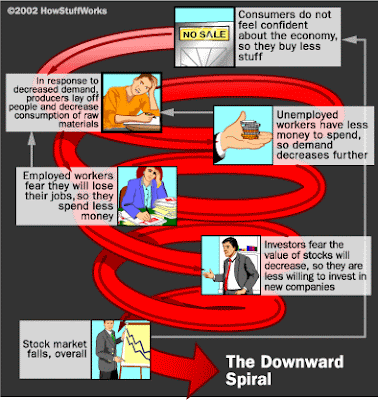A chorus of economists has begun to warn that the world's central banks are fighting the wrong war, and perhaps risk a policy error of epochal proportions.
"Liquidity doesn't do anything in this situation," says Anna Schwartz, the doyenne of US monetarism and life-time student (with Milton Friedman) of the Great Depression.
"It cannot deal with the underlying fear that lots of firms are going bankrupt. The banks and the hedge funds have not fully acknowledged who is in trouble. That is the critical issue," she adds.
York professor Peter Spencer, chief economist for the ITEM Club, says the global authorities have just weeks to get this right, or trigger disaster.
"The central banks are rapidly losing control. By not cutting interest rates nearly far enough or fast enough, they are allowing the money markets to dictate policy. We are long past worrying about moral hazard," he says.
"They still have another couple of months before this starts imploding. Things are very unstable and can move incredibly fast. I don't think the central banks are going to make a major policy error, but if they do, this could make 1929 look like a walk in the park," he adds.
The Bank of England knows the risk. Markets director Paul Tucker says the crisis has moved beyond the collapse of mortgage securities, and is now eating into the bedrock of banking capital. "We must try to avoid the vicious circle in which tighter liquidity conditions, lower asset values, impaired capital resources, reduced credit supply, and slower aggregate demand feed back on each other," he says.
Source:
Telegraph
 This morning, after President-Elect Obama laid out the key parts of his economic recovery plan during his weekly address, he turned to the Internet and told the country that he intends to “renew our information superhighway.”
This morning, after President-Elect Obama laid out the key parts of his economic recovery plan during his weekly address, he turned to the Internet and told the country that he intends to “renew our information superhighway.”









































